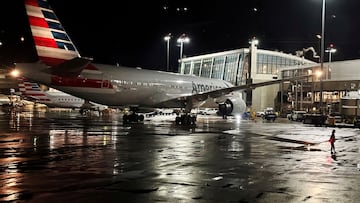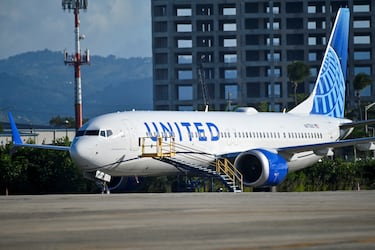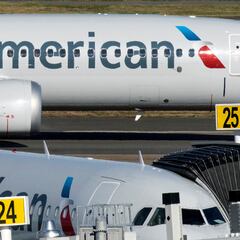Why are flight fares soaring? The reason behind expensive airline ticket prices
With fuel prices increasing and instability worldwide due to various macroeconomic reasons, high operating costs are forcing airlines to increase flight prices.


Cancellations, lost luggage, delays and rising prices... travelers this summer are already seeing some of the worst service the airlines have ever offered. Many airlines are attempting to handle pre-pandemic demand for air travel with a fraction of the staff; needless to say it is not going well.
With many hoping to travel this summer, the poor service has been met with some of the highest prices in the sector’s history.
The pandemic hit the airline industry badly, with major labor shortages after thousands of workers were laid off in March and April 2020 with Russia’s invasion of Ukraine adding to a global fuel crisis.
Amazes me how airlines run by city states (@emirates eg) can make such huge profits while our airlines struggle. Is it our fares? Our govt regulations?
— vir sanghvi (@virsanghvi) May 16, 2024
Now that @SingaporeAir will run India’s national carrier let’s see if the new entity can provide world class service & profits https://t.co/hcwx8Q4BOV
A recent Bank of America Institute survey showed spending at airlines and travel agencies is up a considerable 60% year-over-year. At the same time, as Americans continue to grapple with 40-year high inflation rates and resource-strapped airlines work to get more planes in the air, traveling on a budget seems to be nearly impossible.
This means that the price in the total cost of the barrel of jet fuel is added to other costs related to labor, production, and transportation. If margins increase will the costs of the latter two are likely to be impacted as well, which places more pressure on the price of airfare, gasoline, diesel, and other refined products.

Additionally, in the United States where oil refineries closed down during the pandemic, high prices are being driven by a lack of supply in the market. Marathon Petroleum Corp, the largest refiner in the United States has seen their stock price sour this year, up more than twenty-eight percent since January. Companies are profiting and citizens are struggling to keep up with inflation because of the impact high fuel costs are having across the market.
US airlines still struggle to find workers
Aside from the issues in the fuel market, labor shortages have also impacted airline performance and airfares. Bloomberg reported that around 400,000 airline workers were fired, furloughed, or told they could be at risk of losing their jobs in April and May 2020. Many of these workers went on to leave and find work in a less volatile sector, and as such, the employment situation has not been resolved. The low pay, long hours, and job uncertainty have made it difficult for the industry to attack new workers.
Speaking with The Guardian, the Vice President of the air division at Transport Workers United said that airlines “have been competing in a race to the bottom in terms of how workers are treated, retaining enough workers, and maintaining airline jobs as career jobs.”
Related stories
With many airlines having to cancel and reschedule flights due to labor shortages, hiring challenges are also reflected in the market.
American Airlines and its Wholly-Owned Regionals and the Association of Flight Attendants-CWA, a union representing fifty thousand workers, reached an agreement that both organizations hope will “attract new hires to the skies.”

